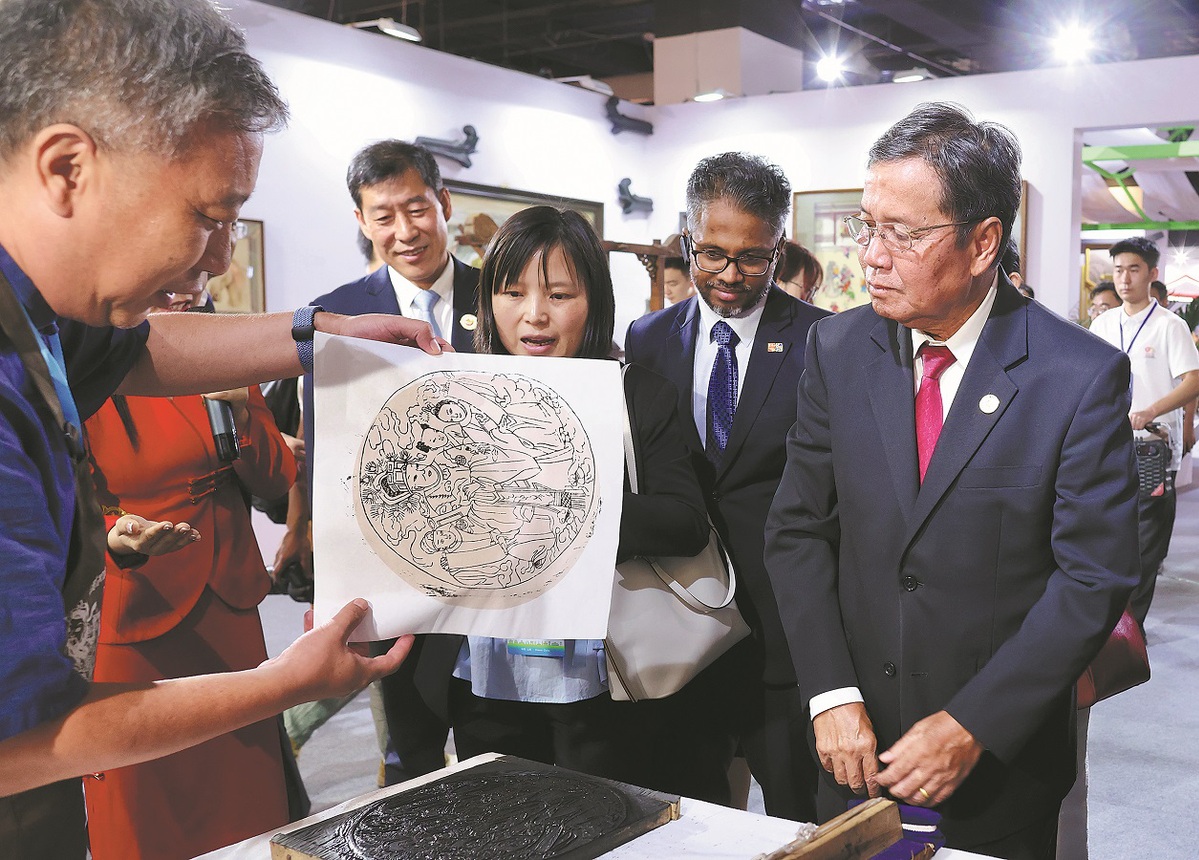China, ASEAN vow to work for shared future
Both sides hope to explore new areas, unlock more cooperation opportunities
By Zhao Jia and Zhu Xingxin in Changzhi, Shanxi | China Daily | Updated: 2024-08-13 07:55

Officials from China and the member states of the Association of Southeast Asian Nations reaffirmed on Monday their commitment to exploring new areas and unlocking new opportunities for cooperation and innovation, in order to pave the way for a more prosperous and sustainable future.
They made the pledge at the opening ceremony of the ASEAN-China Week 2024 held in Changzhi, a city in North China's Shanxi province, vowing to build a closer community with a shared future for China and ASEAN.
In a congratulatory message sent to the event, Foreign Minister Wang Yi said that China and ASEAN, as friendly neighbors and vibrant markets, enjoy boundless potential in their relationship.
Wang, who is also a member of the Political Bureau of the Communist Party of China Central Committee, expressed the hope that the countries could leverage complementary advantages, accelerate coordinated development, and jointly foster and strengthen new quality productive forces to inject fresh impetus into respective development and revitalization as well as boost regional stability and prosperity.
The third plenary session of the 20th CPC Central Committee held last month reaffirmed high-quality development as the primary task in seeking Chinese modernization, with fostering new quality productive forces being one of the key instruments toward that goal.
The term "new quality productive forces" is also gaining attention from ASEAN countries in the context of pursuing quality economic growth and cooperation in the long run.
"Innovation, as we all recognize, is the key to unlocking new avenues of growth and ensuring that our economies remain resilient and competitive in the global landscape," said Neth Pheaktra, Cambodia's minister of information.
He said that new areas of collaboration in sectors such as the digital economy and green technologies are emerging, and the ongoing implementation of the Regional Comprehensive Economic Partnership agreement and the progress of the ASEAN-China Free Trade Agreement 3.0 would continue to bolster economic ties.
According to statistics from ASEAN, the trade volume between the two sides reached a record of $702.3 billion last year, making China the group's largest trading partner for 15 consecutive years.
The Cambodian minister also spoke highly of the China-proposed Belt and Road Initiative, saying that over the past decade, the BRI has been "a key driver" of Cambodia's infrastructure, trade and economic growth, and has brought significant infrastructure developments to the region.
Moving forward, Pheaktra said he believed the innovation-driven and interconnected ASEAN-China cooperation will deliver benefits to all peoples in the region.
Thet Thet Khine, Myanmar's union minister for hotels and tourism, said: "Innovation, in all its forms, is the cornerstone of sustainable development. I am particularly excited about the role that innovation can play in our industry. Tourism has been a vital component of the economies of both ASEAN and China."
Noting that 2024 has been designated as the ASEAN-China Year of People-to-People Exchanges, she underscored the need to leverage innovative practices to create more resilient and sustainable tourism, and enhance cultural exchanges to build trust and strengthen bonds between ASEAN and China.
Also at Monday's event, Shi Zhongjun, secretary-general of the ASEAN-China Center, announced the official launch of the ASEAN-China Import and Export Service Platform.
The platform, which is already in operation, has received thousands of cooperation requests and is expected to generate an annual market demand of more than $10 billion in the future, Shi added.
Jin Xiangjun, governor of Shanxi province, said the ASEAN-China Week serves as a bond to strengthen cooperation and exchanges between the province and ASEAN member states, and called for deepening cooperation in areas such as trade, education, culture and tourism.
























